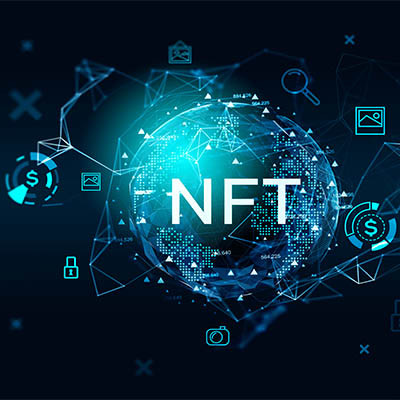PCSOFT Blog
What is an NFT and Why Does it Exist?
Cryptoassets have been on the rise, and with it has come the term “NFT.” But what is an NFT, and why does it matter what it is for a small business like yourself? Let’s examine this concept in a bit greater detail through the use of a hypothetical situation.
Let’s Say You Attended an Art Auction...
… and as you were sitting in the bidder’s gallery, the original, or first instance of the Nyan Cat GIF was put up for sale. It’s pretty commonplace on the Internet, so it’s weird for someone to want to buy that for an exorbitant cost, right? There’s no way someone would purchase a Nyan Cat GIF for $561,000 USD, right?
Wrong. This actually happened, and it has major implications for the sale of digital assets.
NFTs Have Allowed for the Sale of Digital Assets
NFTs, or non-fungible tokens, are cryptoassets in a similar vein to cryptocurrency. The primary difference between the two is that cryptocurrencies like Bitcoin are fungible, meaning there is no difference between Bitcoins, whereas there are differences between NFTs. In essence, comparing Bitcoins or other cryptocurrencies is like comparing apples-to-apples, whereas comparing NFTs is like apples-to-oranges.
Blockchain technology fuels NFTs and cryptocurrencies, meaning that the record cannot be changed once one is created.
But What Is an NFT?
Think of an NFT as an official seal of ownership, or something that tells everyone else that you own a particular digital asset. These tokens can be linked to just about anything sold digitally, from images to articles to music to virtual real estate and so much more.
Depending on your role in the transaction, NFTs can have different impacts. For example, a digital artist can set up a piece of artwork with an NFT so they can sell their work and make some cash from all future transactions related to that item. Casual buyers get bragging rights for purchasing something they care deeply about or basic usage rights, as well as the satisfaction of supporting artists financially. Collectors can also use NFTs on speculation in attempts to turn profits later on down the road.
NFTs were created when the Ethereum blockchain added support for them, eventually leading to the development of a game/online community called Cryptokitties. Each Cryptokitty is its own NFT, so they can be used with another kitty to breed other unique Cryptokitties. Another example of this in action is allowing participants to collect virtual rocks. We swear, this whole NFT thing gets weirder and more interesting the more you learn about it.
Are NFTs Going to Be “A Thing?”
Only time will tell is the long and short of it. The mainstream has only recently jumped aboard NFTs, but many folks have begun to show support for the idea. The band Kings of Leon’s latest (as of this writing) album was sold in the form of an NFT, with different tiers adding different bonuses. Other examples include groups of athletes who provide fans with digital collections of memorabilia, as well as other brands like Marvel, DC, and Star Trek releasing digital statues of their popular characters.
One thing to note, however, is that NFTs contribute to the same environmental issues that blockchain processes do, so these will have to be addressed at some point in the future if NFT mania really takes off.
In Short, Technology Can Be Really Confusing…
… so before you make any major investments or decisions for your company, we urge you to discuss it with PCSOFT. We can help you make the most educated decisions about the future of your business. To learn more, reach out to us at 02 98730080.


Comments